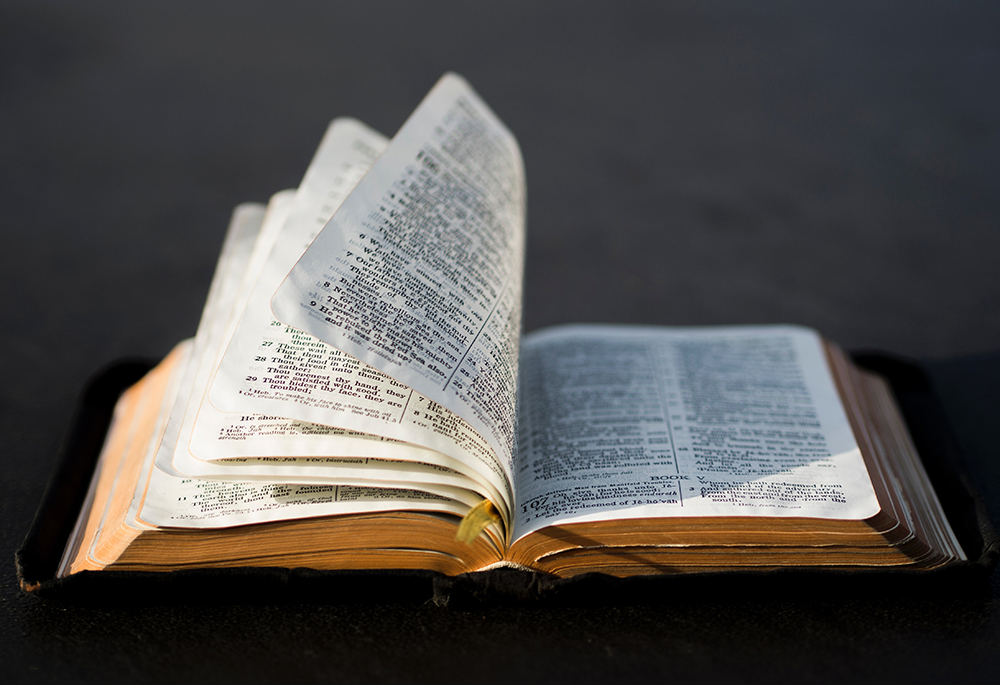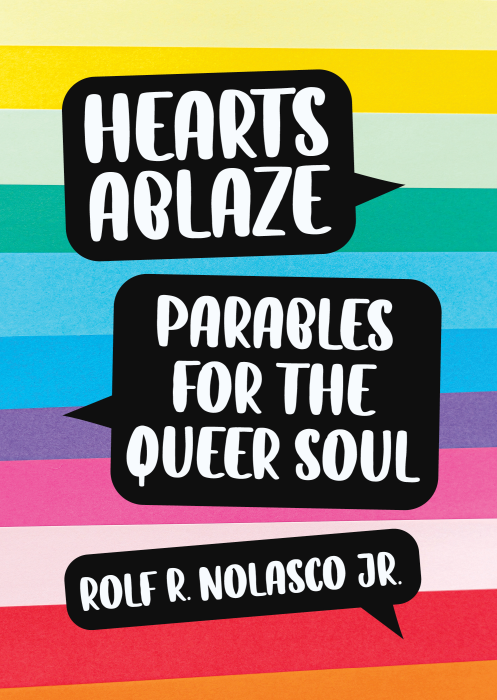
(Unsplash/Aaron Burden)
Author's note: Context plays an important role in how the term "queer" is employed here. This word has a history of being used as a slur and could offend some people. However, as language evolves, some individuals and communities choose to reclaim terms that were once used to insult them. Reclaimed words take on new meanings for the communities that identify with them and are often imbued with a sense of pride and resilience. In this piece "queer" is being used as an umbrella term for anyone in the LGBTQIA+ community and their experience of sexuality and/or gender.
We were well into our semester on biblical studies when one of my classmates asked the worst question I've ever heard about queer people. We had been going over the Gospels and the parables and teachings of Jesus when she raised her hand and wondered, "Are gay people the modern-day prostitutes and lepers?"

I can't explain the way it made me sick to hear. I wasn't surprised, though. To many, Christianity's view of queer people is that we are somewhere between sick individuals in need of healing, i.e., lepers, and sexual deviants in need of correction, i.e., prostitutes. Outside of being used to paint a painfully terrible portrait of us, the Scripture is often quoted directly to condemn our experiences, love and identities.
In the years since that class, I have wondered what queer people's relationship to Scripture is supposed to look like. Is the Gospel good news for queer people? And if Jesus came to liberate all of us, does that mean queer liberation as well?
Rolf R. Nolasco Jr. faces this question head-on in his new book Hearts Ablaze: Parables for the Queer Soul. In it, he reflects on ten parables from a queer perspective. The parables, the primary form through which Jesus presented his upside-down vision of the world, are the perfect vehicle to deliver the queerness of Scripture. As Nolasco puts it, the parables are "truths in drag" in that "they draw or tease us into the story that is familiar, vivid, and strange (like a drag performance) and then leave us there bewildered and astonished."

(Unsplash/Gift Habeshaw)
Nolasco's "drag show" is made up of ten acts (or parables): the Good Shepherd, the Great Banquet, the Mustard Seed, the Hidden Treasure, the Sower, New Wine in Old Wineskins, the Lost Son, the Good Samaritan, The Talents, and The Wise and Foolish Builders. Each function as a window to the radical heart of the Divine queer storyteller. After all, Nolasco writes, "Jesus's parables are very queer in their attempts at evoking both 'delight and instruction to countless people and offense to others.' "
That offense often arises in "those who refused to have their version of reality be interrogated and disturbed." For Nolasco, the parables of Jesus are stories at the heart of the fight for queer liberation. "The religious elite then and now have always shivered at the thought of Jesus inaugurating a radical vision of a world (reign, kin-dom, or queerdom of God) that is not run by a system of power and privilege." The parables become stories about the world to come, when queer liberation is fully realized. The "kin-dom" of heaven, as Nolasco calls it, is not a heaven in which queer people are merely welcomed, but rather a vision of the world imbued with queerness.
This is certainly exhibited in Nolasco's reflection on one of the most famous parables of all time. Through this retelling of the story of the prodigal son, readers are encouraged to reflect on the queerness exhibited in the portrait of the father who breaks all the conventions of culture and patriarchy. When the lost son wishes his father dead and demands his inheritance, the father gives it to him. When that same son returns, the father runs to him. When his other son yells at him in his own home, he meets him with sensitivity and love. As Nolasco puts it, "Love that is rejected and love that is missed are countered by the father's love, no matter what. It is queer through and through." Queerness then becomes a lens that is offered to everyone, a frame of mind to see out of the conventions of cis/heteronormative "love" and instead the boundless expressions of a love that is made queer.
Advertisement
There is something subtle that happens in the heart as one reads these reflections. The interchange of queer and good is impactful, and the more you see it, the more you realize how little you have heard the two words used in the same sentence. Queerness, often talked about as an obstacle to true faith, is here a treasure. And the queer body, seen by some as disordered, is a new wineskin carrying the new wine of the liberating Gospel of Jesus.
I was talking to a queer friend about what we often see in books like this; queer readings of Scripture. "They make me sad," my friend confessed. I agreed. There is a kind of desperation that can come across in these "reexaminations" of Scripture. It can be comforting to imagine Jonathan and David's friendship might have been something more, or that Paul confirmed the gender spectrum when he said, "no longer male and female, for you are all one in Christ Jesus." But at the end of the day, you and I and the bigoted preacher on the street corner know if we went back in time and asked Jonathan, David and Paul if they had a concept of queer theory, they would not.
What makes Hearts Ablaze different is that Nolasco is not interested in proving the validity of our queer perspective through Scripture, but rather in bringing the queer lens to Scripture and seeing what mysteries unfold. He explains, "I took seriously the sociocultural and political contexts out of which the texts emerged, but they did not have the last word in what the parables mean. … The difference that I hope to make is to center the particularities of queer life in the way I have experienced and embodied them and to use the texts to enrich and expand that life so that it flourishes."
Hearts Ablaze lives up to its promise of being "for the queer soul." It is honoring and encouraging to the queer reader. It is a fresh reading of ancient stories and an invitation to the liberating mission of Jesus. In a church that often leaves me asking, "Where is queerness in Scripture?" Hearts Ablaze answers: every page.








